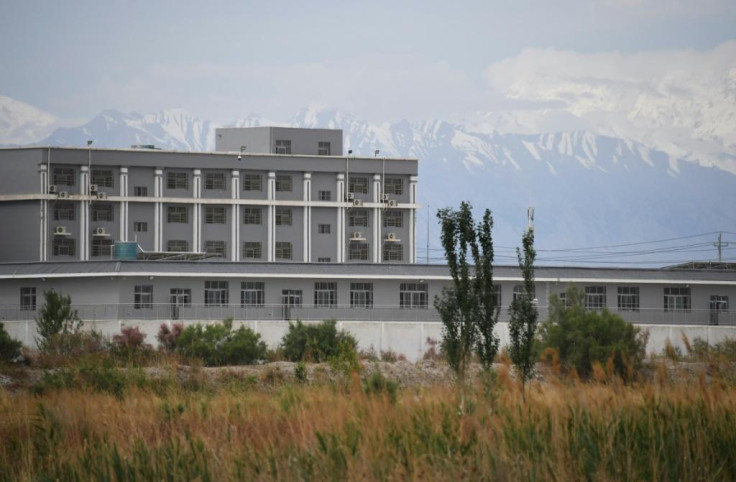China Accused Of Genocide As Hundreds Of Mosques Are Destroyed
As part of its policy that sets out to "sinicise" religious minorities, the Chinese government has ordered the destruction of thousands of mosques.

Human Rights Watch has exposed the Chinese government for significantly reducing the number of mosques in the Ningxia and Gansu provinces.
As part of its "mosque consolidation" movement, China has violated the rights to freedom of religion and religious expression – says the Human Rights Watch.
Several mosques have been closed down and decommissioned, only to be transformed into secular facilities that restrict the practice of Islam in China.
In 2014, it was reported that China was home to almost 40,000 mosques, 39,135, with the largest number of places of Islamic worship being in the Xinjiang, Gansu and Ningxia regions.
In 2014, the Xinjiang region was home to the largest number of mosques in any area of China, measuring at 24,100.
Out of Xinjiang's population of around 25.87 million inhabitants, according to Statista, 12 million people are part of the Muslim ethnic group – known as the Uyghurs.
The Uyghur community are known to speak a Turkic language and are dedicated to Islam.
For years, the Chinese government have been accused of committing atrocities, including a possible genocide, against the Uyghur population.
In 2023, the Australian Strategic Policy Institute estimates that 65 per cent of Xinjiang's mosques have been demolished or damaged since 2017.
Around half of Xinjiang's mosques have been completely demolished, said the Australian Strategic Policy.
The number of mosques reported in the Ningxia region was reportedly at 4,606 in 2014. Since 2020, Scholars Hannah Theaker and David Stroup, estimate that around 1,300 mosques in the Xinjiang region have been closed.
As part of the government's controversial policy, Islamic architecture, such as domes and minarets that represent religious culture, have also been removed from some of the mosques.
In its report, Human Rights Watch confirmed that it had "verified and analysed videos and pictures" that have been published online, depicting the destruction of mosques in two villages located in China's Ningxia region.
The Human Rights Watch report declared: "Of these villages' seven mosques, four had significant destruction: three main buildings had been razed and the ablution hall of one was damaged inside."
When China's President, Xi Jinping, came to power in 2016, the government ordered a Sinicization of religions in China.
Just two years later, in 2018, Beijing issued a statement that urged the Chinese Communist Party (CCP) to "strictly control the construction and layout of Islamic activity venues".
The government should also "adhere to the principle of demolishing more and building less", the Beijing directive continued.
Maya Wang, the Acting China Director for Human Rights Watch accused the Chinese authority of violating the human rights of the Islamic population. She said: "The Chinese government is not 'consolidating' mosques as it claims, but closing many down in violation of religious freedom."
"The Chinese government's closure, destruction, and repurposing of mosques is part of a systematic effort to curb the practice of Islam in China," she added.
Ma Ju, a Hui Muslim Activist who is based in the US also exposed the Chinese government for its injustice against those practicing Islam.
After speaking to those affected by the policy that sets out to "sinicise" the religious minorities, Ma Ju claimed: "Government officials first approach those Communist Party members who are also Hui Muslims ... then they move onto 'persuading' students and governmental workers, who are threatened with school probation and unemployment if they continue with their faith."
After the mosques are converted into secular facilities, "the local governments strictly monitor attendance at the remaining mosques", Ma Ju added, going on to reveal: "In the beginning, they would check the attendees' national identification cards. Then they install surveillance cameras ... to flag [those prohibited from mosques, including] Communist Party members or children."
The Human Rights Watch have since ordered the Chinese government to reverse its Sinicization campaign on all religions, considering everyone has the right to manifest their "religion or belief in teaching, practice, worship and observance".
© Copyright IBTimes 2025. All rights reserved.






















